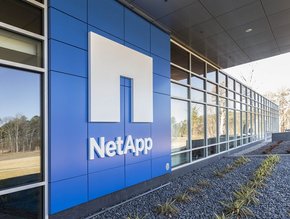Capgemini report: generative AI benefits to offset concerns

Nearly all executives (96%) recognise that generative AI is a key topic in the boardroom, according to Capgemini Research Institute’s latest report, ‘Harnessing the value of generative AI: Top use cases across industries’.
The report, which examines the transformative force of generative AI across enterprises, found that despite apparent risks - such as copyright infringement or cybersecurity - 74% of executives believe that the benefits posed by generative AI outweigh the associated concerns. While 21% anticipate a disruption in their industries, 40% of organisations across industries have already established teams and budgets for the technology, with a further 49% contemplating doing so within 12 months.
Generative AI use cases include tools for customer service and improving knowledge management
Organisations told the Capgemini report that they believe that the most relevant generative AI-based platforms or tools for their industries are chatbots for automating customer service and improving knowledge management (83%) and designing, collecting, or summarising data (75%)
Within three years’ time, executives said they foresee a range of benefits. Generative AI’s integration will lead to an 8% increase in sales and a 7% decrease in costs, the report says. Alongside this, those surveyed indicated that they could expect to see a 9% improvement in both customer engagement and satisfaction, and operational efficiency.
“Generative AI is a transformational force for innovation in organisations, accelerating industry-specific use cases to create value, and it’s no surprise that it’s already at the top of the agenda of virtually every large organisation,” comments Franck Greverie, Chief Portfolio Officer and Group Executive Board Member at Capgemini. “While generative AI can enable numerous benefits for businesses and employees alike, adopting a human-centric approach while scaling the technology and implementing necessary guidelines will be key to fostering trust in the workplace. As businesses accelerate their generative AI journeys, they must prioritise implementing it sustainably across the organisation.”
Rise of generative AI to create new roles and require investment in upskilling
According to 69% of businesses, generative AI will cause employees’ roles will shift away from ideation and creation, to review and refinement. This sentiment was also echoed by consumers, with 70% saying that they believe generative AI will make them more efficient at work, free them from routine tasks and enable them to explore more strategic aspects of their job.
The research reveals that 69% of executives believe generative AI will lead to the emergence of new roles such as AI auditors and AI ethicists.
With the introduction of new generative AI-based roles, 68% of executives believe that integration of the technology into the workforce will require significant investment in upskilling and cross-skilling of talent.
Generative AI to revolutionise how businesses operate
Just as the first wave of Google search transformed how we used the internet, generative AI will revolutionise how businesses operate - affecting everything from product development, customer experience, talent and knowledge to values and ethics
By using generative AI, organisations will be able to unlock knowledge on a never-before-seen scale, Alec Boere, Associate Partner for AI and Automation, Europe at Infosys Consulting recently told Technology Magazine.
“No matter what clickbait headlines might claim, generative AI won’t replace the human workforce,” Boere commented. “If anything, it will help to enhance it, creating higher value work and helping to bridge gaps in knowledge. In fact, with numerous industries facing crippling shortages of skilled workers, as this technology develops, it will streamline work and ensure organisational knowledge is easily stored and accessible.”
- ServiceNow & Microsoft Partnership Driving Enterprise Gen AIDigital Transformation
- NetApp Cloud Complexity: Reliable Data is Key to AI SuccessCloud & Cybersecurity
- AMD: Expansion, Growth and Doubling Down on AI InnovationAI & Machine Learning
- Flexential: Momentum Report Highlights Hybrid IT InnovationCloud & Cybersecurity






